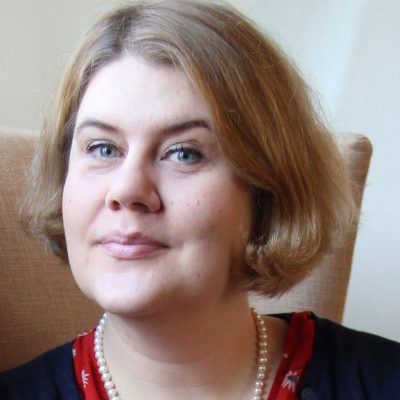Developing comprehensive security requires stronger cooperation, especially with civilian actors. Simultaneously, it is necessary to enhance expertise so that Finland can respond to new types of threats.

SaferGlobe ry thanks for the opportunity to provide a statement regarding the Government’s Foreign and Security Policy Report.
In SaferGlobe’s view, in the “new era of foreign and security policy,” it is of paramount importance to support the security of all Finns. Developing comprehensive security requires stronger cooperation, especially with civilian actors. Simultaneously, it is necessary to enhance expertise so that Finland can respond to new types of threats. It is also important that Finnish researchers and civilian experts can create broader networks of competence and develop new kinds of expertise in Finland. At the same time, Finland must maintain and advance its proficiency as a peace actor.
SaferGlobe believes the following points should be more thoroughly considered in the report:
Maintaining Strong Peace Expertise is Crucial Amid Future Challenges
SaferGlobe appreciates that Finland’s robust peace expertise has been acknowledged and its significance emphasised in the report. Future security prospects are challenging, and it is important that Finland continues to support stable and functional societies.
The security policy landscape is characterised by complexity, where few threats are purely military anymore. Finland’s unique trump card in such complex situations has long been its strong multi-actor cooperation, based on maintaining broad trust within Finnish society. However, this cooperation must be continuously developed and resourced so that we can utilise this advantage as effectively as possible.
Over the years, comprehensive security has become increasingly military-centric and authority-driven. In a resilient society, individuals are active builders of security, not merely objects who follow official directives when issued. Everyday security, the safety of the most vulnerable in society, and the ability of local communities and municipalities to operate under exceptional circumstances are crucial for the security of all Finland. This resilience should also be developed as part of comprehensive security and integrated into foreign and security policy.
SaferGlobe is deeply concerned that the report does not clarify how Finland acts in situations where new types of threats are both internal and external. Finland’s preventive action in foreign and security policy emphasises participation in international activities.On page 27 of the report, it states: “Measures support internal and national security, the rule of law, territorial integrity, and public order and safety.” On page 32, it notes: “Finland continues international cooperation to combat terrorism, violent extremism, and violent radicalisation as part of national prevention”—but how is this activity implemented in Finland, and how do international and national efforts intertwine? Who actually carries out this work in Finland? How do these actors benefit from international cooperation? What if the activities are not led by authorities? How is strategically important civil society activity considered? How is the development of expertise supported if, for instance, a researcher does not happen to be interested in the topic at university?
In the current situation, Finland lacks key expertise and international networks. Strong Finnish authority work is guided by budget lines shaped over decades. While the work itself is robust and competent, it cannot simultaneously be agile, innovative, and quick to adopt new trends. It is evident that there are gaps in Finland’s expertise because we have not previously faced a security situation like the current one. Beyond official cooperation, Finland also needs expert collaboration to gain informal insights into internationally significant themes.
3.1. Weapons of Mass Destruction
Finnish expertise in weapons of mass destruction has been thin for a long time, with little development in information production or competence in this area.
3.1.1. Biological Weapons
Biological weapons have remained under the radar until recent years because they were traditionally thought to spread uncontrollably, potentially harming the user. However, advancements in genetic technology and artificial intelligence now make it possible to create tailored biological weapons that could threaten food security. Export control of biological weapons has also been inadequate for a long time. Here, Finland could take an active role.
3.1.2. Chemical Weapons
In addition to the commendable verification work of VERIFIN, there is a need to understand how chemical weapons are used and what types are being developed. Active advancement of Finnish research in chemical weapons is necessary.
3.1.3. Nuclear Weapons Research
Finnish nuclear weapons research has largely focused on American perspectives. It is important for Finland to develop its own expertise based on national security priorities. The deployment of nuclear weapons in countries like Germany has introduced various challenges.
3.2. Arms Race in Disruptive Weapon Technologies, Artificial Intelligence, and Dual-Use Export Control
We commend the report for recognising the defence-critical impacts and opportunities of disruptive technologies, as mentioned on page 30. However, we wish to emphasise the new risks associated with technology as an accelerator of warfare and a threshold reducer, already evident globally. This makes the issue exceptionally urgent for Finland’s security policy and high-tech industries. The accelerating arms race requires immediate global governance and regulation to balance it, given the significant increase in international conflict potential.This development also means that the export control of dual-use items, such as microchips and software, should be enhanced to provide statistical data on what is exported, to where, and in what quantities. Particularly for dual-use items, it is important to develop a risk-based control model focusing on high-risk products and destinations.
3.3. Hybrid Threats
Hybrid threats increasingly impact Finnish society, yet grassroots efforts to prevent information influence and disinformation are fragile. Who is responsible in Finland for ensuring sufficient preventive work against disinformation? Is good education the only model for preventing disinformation? What about information influence operations? Who is responsible for preventing them and ensuring factual accuracy?Hybrid threats also have a growing impact on international cooperation. SaferGlobe has observed suspicion towards state-affiliated actors in its networks, primarily due to Russia’s influence attempts. Cooperation increasingly relies on networks of reliable and established actors, who are required to maintain greater transparency and adhere to international best practices.
3.4. Preventing the Harmful Proliferation of Weapons, Illicit Arms Trade, and Armed Violence
Finland should actively participate in efforts to prevent the harmful proliferation of weapons in Europe. Generally, the more unchecked the spread of weapons, the greater the risks to Finland’s internal security.In combating illicit arms trade, it is crucial for Finland to have up-to-date information on the types of weapons used in crimes and their origins. To our understanding, these data are not currently systematically compiled, resulting in a lack of statistical insight into trends.With the increase in armaments and the number of weapons, it is anticipated that armed violence will also rise. Developing preventative measures against armed violence is essential and requires long-term, multi-actor cooperation that considers international arms trade and technological advancements.
3.5. Bringing International Knowledge, Expertise, and Best Practices to Finland and International Co-Development
In addressing new security threats, Finland has much to learn from others, especially larger EU countries. Leveraging this knowledge and introducing best practices into Finland is essential to remain at the forefront of development. Simultaneously, Finland can lead in developing security solutions for complex situations through multi-actor cooperation. Instead of competing on others’ terms, our robust security expertise allows us to create internationally appealing competencies.
SaferGlobe is concerned about potential reputational risks if due diligence obligations are not adequately considered as Finland seeks to develop its defence sector and exports. This is particularly pertinent as more new, small companies enter the field alongside established producers. The defence sector relies on trust and involves various international responsibility obligations.A few years ago, SaferGlobe played a background role in ensuring that the Finnish Defence Forces were fairly evaluated in an international corruption study. The international organisation was prepared to assess the Defence Forces harshly due to insufficient public information on anti-corruption measures on their website. After months of dialogue, we managed to rectify the situation.In processes aiming to boost exports, due diligence obligations and reputational risk management are seldom mentioned, even in high-risk sectors where trust is essential. Explicitly enhancing responsibility through various criteria supports ongoing reliability.In weapons production, it is important to consider the entire lifecycle of armaments—including production, usage, and decommissioning (i.e., destruction or recycling). Many modern weapons utilise critical minerals, whose availability may be challenging. Therefore, developing production methods and recycling is increasingly important from a security policy perspective.
War zones in the heart of Europe remain important after conflicts end. Environmental destruction—both directly as acts of war and as a consequence of military operations, as extensively seen in Ukraine—affects the habitability of areas long after hostilities cease. The unprecedented use of Cold War-era weaponry means that the soil is now widely contaminated. This should be considered in Finland’s defence strategies to ensure the entire country’s livability. In developing weapons technology, it would be prudent to innovate solutions aimed at supporting the rehabilitation of areas post-conflict.
In Finland, limited resources can be mitigated through multi-actor cooperation and social innovation. The more Finns participate in enhancing our collective security, the more resilient and sustainable Finland becomes. SaferGlobe hopes that in supporting common security, the need to develop internal security is also recognised, and that, in addition to advancing expertise, social innovations are supported to effectively bolster our safety.
